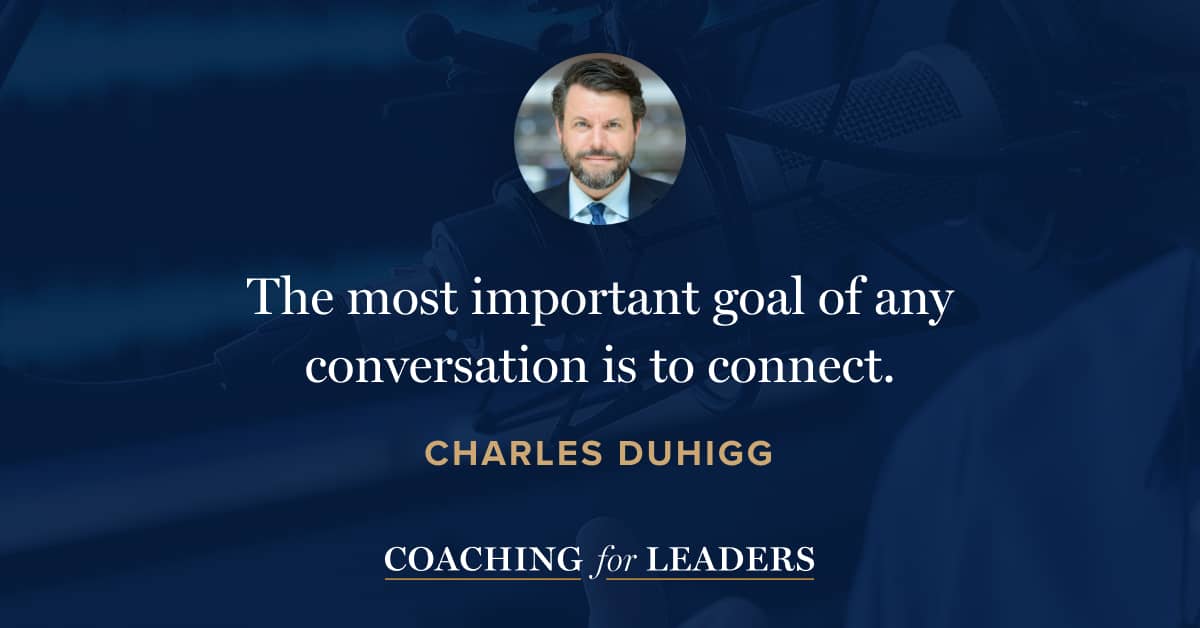Charles Duhigg: Supercommunicators
Charles Duhigg is a Pulitzer Prize–winning investigative journalist and the author of The Power of Habit and Smarter Faster Better. A graduate of Harvard Business School and Yale College, he is a winner of the National Academies of Sciences, National Journalism, and George Polk awards.
He writes for The New Yorker and other publications, and is host emeritus of the Slate podcast How To! He's the author of Supercommunicators: How to Unlock the Secret Language of Connection*.
We all know that we can’t lead if we don’t connect. The best leaders not do this well, but they do it consistently with all kinds of people. In this conversation, Charles and I discuss what we can learn from the best communicators to get better ourselves.
Key Points
- Neural entrainment is when we click with someone and can finish each other’s sentences (and even our biological responses align). Supercommunicators trigger this consistently across many kinds of relationships.
- Supercommunicators aren’t always loudest or leading the conversation, but they ask more questions and adapt better in the moment.
- Make emotional replies easier for others. Instead of, “Do you have any hobbies?” ask, “If you could learn anything, what would it be?”
- Reciprocation of emotion is key for people to connect well. When another party is sharing something joyful, that’s an opportunity to share yourself.
- When something is more contentious, loop for understanding by (1) asking a deeper question, (2) repeating back in your own words, and (3) asking if you got it right.
Resources Mentioned
- Supercommunicators: How to Unlock the Secret Language of Connection* by Charles Duhigg
Interview Notes
Download my interview notes in PDF format (free membership required).
Related Episodes
- Where You May Be Provoking Anxiety, with Erica Dhawan (episode 528)
- The Way to Get People Talking, with Andrew Warner (episode 560)
- How to Help Others Be Seen and Heard, with Scott Shigeoka (episode 654)
Discover More
Activate your free membership for full access to the entire library of interviews since 2011, searchable by topic. To accelerate your learning, uncover more inside Coaching for Leaders Plus.





